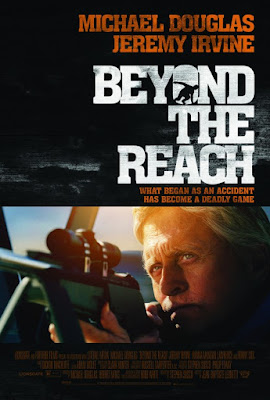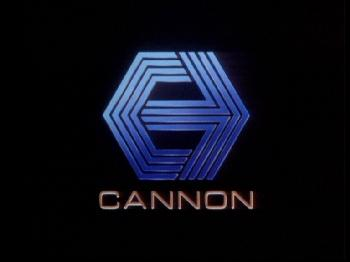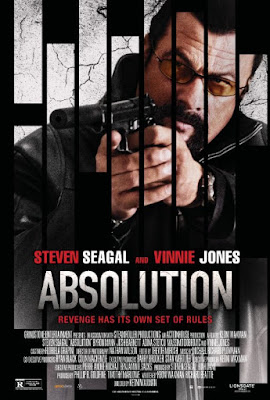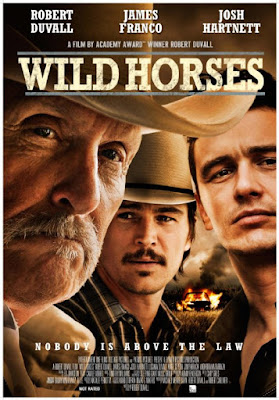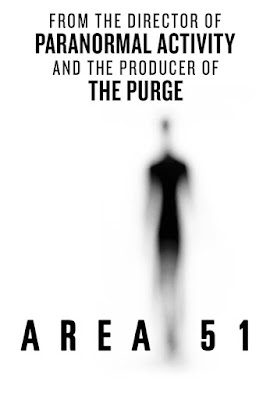BEYOND THE REACH
(US - 2015)
From 1987's FATAL ATTRACTION through 2001's DON'T SAY A WORD, Michael Douglas had a remarkable run as the king of the controversial, hot-button hit. Whether it was WALL STREET or BASIC INSTINCT or FALLING DOWN or DISCLOSURE and others (you could even go back further and include 1979's THE CHINA SYNDROME), Douglas' string of hits were routinely the subject of water-cooler discussion and zeitgeist-capturing debate. Douglas' star no longer shines like it once did and the movies aren't as attention-getting, but he's kept busy in recent years, even attempting to recapture some of that Gordon Gekko magic in Oliver Stone's dismal WALL STREET: MONEY NEVER SLEEPS (2010). The thriller BEYOND THE REACH finds him in prime "smug, entitled asshole" mode, like a fusion of Douglas' Gekko and his murderous husband in 1998's DIAL M FOR MURDER remake A PERFECT MURDER, and he seems to be enjoying every minute of it. Produced by Douglas, BEYOND THE REACH would've been a hit if it came out 15 years ago, but was only released on 27 screens in the US for a gross of $46,000--a far cry from the actor's early '90s glory days. Douglas is John Madec, a multi-millionaire insurance exec who stops in a small town outside the Mojave Desert to hire a tracker to help him bag a bighorn sheep. The sheriff (Ronny Cox) tells deputy Ben (Jeremy Irvine), "the best tracker in the state," to take Madec out beyond "The Reach," a desolate area of the Mojave. Because he calls the shots in the boardroom, Madec doesn't really care that he's total amateur hour outside the security of a canned trophy hunt, careless with his high-tech weapon and operating under the belief that wealth and privilege trump safety and knowledge. Madec is a man who gets what he wants and brazenly advertises that he's the most important guy in the room (he even parks his obscene, $500,000 Mercedes 6x6 off-road-vehicle--with an espresso machine and calibrated convection oven for perfectly-grilled steaks--across three spots outside the sheriff's office). Madec makes Gordon Gekko look humble, and when he isn't on his phone brokering the sale of his company to some Chinese businessmen, he waxes rhapsodic to Ben about his favorite subject: John Madec. An unimpressed Ben goes along to get along, even taking a bribe when he learns Madec doesn't have a hunting license, but things quickly go south when Madec impulsively shoots something moving in the distance--something that turns out to be a local prospector. Madec uses his manipulative sales techniques to cajole Ben into burying the body and buying his silence with the promise of a college education and a future career, an agreement settled with a bloody handshake. But when Ben's conscience kicks in, he tries to radio back to town and Madec decides Ben has to die--not by gunshot, but by stripping down to his boxers and walking across The Reach, barefoot and without water, in the blistering 120°F sun, with Madec following close behind to ensure he dies of heatstroke. It's like a class struggle version of Tuco's desert torture of Blondie in THE GOOD, THE BAD AND THE UGLY.
Based on Robb White's 1972 YA novel Deathwatch and previously made into the 1974 ABC TV-movie SAVAGES with Andy Griffith and Sam Bottoms, BEYOND THE REACH works when it's a tense game of cat-and-mouse between Madec and Ben. But screenwriter Stephen Susco (THE GRUDGE, TEXAS CHAINSAW) and director Jean-Baptiste Leonetti throw in a lot of inconsequential padding, like Ben moping around over his girlfriend (Hanna Mangan Lawrence) going off to college and entirely too much time spent on Madec's uninteresting deal with the Chinese. As the film proceeds, it starts relying on contrivances and gets increasingly cartoonish, with Madec sipping martinis and blaring classical music in the middle of The Reach while waiting for the right moment to shoot Ben from a distance (also, they're out in The Reach for several days--wouldn't the sheriff come looking for them at some point?). Douglas is obviously enjoying the opportunity to ham it up, but it undermines the genuine suspense of the early-going, and by the time the climax rolls around, Susco and Leonetti have completely driven things off the cliff, with a coda that's more at home in a slasher movie than it is here. Madec is a rich asshole--he's not an unstoppable killing machine. BEYOND THE REACH is entertaining enough and at just 90 minutes, it's never boring, but the additions made to the story just end up being extraneous filler that does it no favors. It's nice to see Douglas--who, at 70, is looking more like his dad than ever--sinking his teeth into the sadistic extreme of the kind of role he used to own, but BEYOND THE REACH just gets too beyond silly for its own good. (R, 92 mins)
THE PYRAMID
(US - 2014)
20th Century Fox planned on opening THE PYRAMID on over 2000 screens until shortly before its December 2014 release, when some studio exec must've accidentally watched it and it was abruptly scaled back to around 600, essentially a tacit admission that 600 screens would be 600 too many. Produced by Alexandre Aja (HIGH TENSION, the remake of THE HILLS HAVE EYES) and the debut directing effort by his longtime writing partner Gregory Levasseur, THE PYRAMID is yet another faux-doc/found-footage time waster, centering on a bickering father-daughter archaeologist team (Denis O'Hare, Ashley Hinshaw) investigating an underground, three-sided pyramid in Egypt that's supposedly been unexplored for untold millennia. They're being tailed by a documentary crew, but Levasseur can't be bothered to establish any consistency in the way the film is shot. Sometimes it's documentary shaky-cam, sometimes it's a straight narrative horror movie, switching back and forth at random. Once inside the pyramid, they encounter feral, cat-type creatures and are picked off one by one by a larger monster, ultimately concluding that the pyramid is a) the prison of Anubis, the heart-weighing, heart-devouring jackal god of ancient Egypt, and b) probably still a more pleasant place to be trapped than inside a theater showing THE PYRAMID. Most of the film consists of screeching characters running around in total darkness, and what little you can see isn't scary or even remotely interesting. The worst film to come from the Aja camp since the remake of PIRANHA, THE PYRAMID is further evidence that this style of horror film has just run its course and should be mercifully taken off life support. Dull, uninspired, impossibly lazy, and filled with the kind of stupid dialogue exchanges where people are having things they should already know clumsily explained to them strictly for the sake of informing the audience, THE PYRAMID is so bad that it may actually induce a newfound appreciation for the similarly-set AS ABOVE SO BELOW. You're better off just listening to Mercyful Fate's 1993 song "Egypt," which essentially tells the whole Anubis/Osiris story in a more coherent fashion, with the added bonus of some killer guitar work and King Diamond's signature falsettos. (R, 89 mins)
